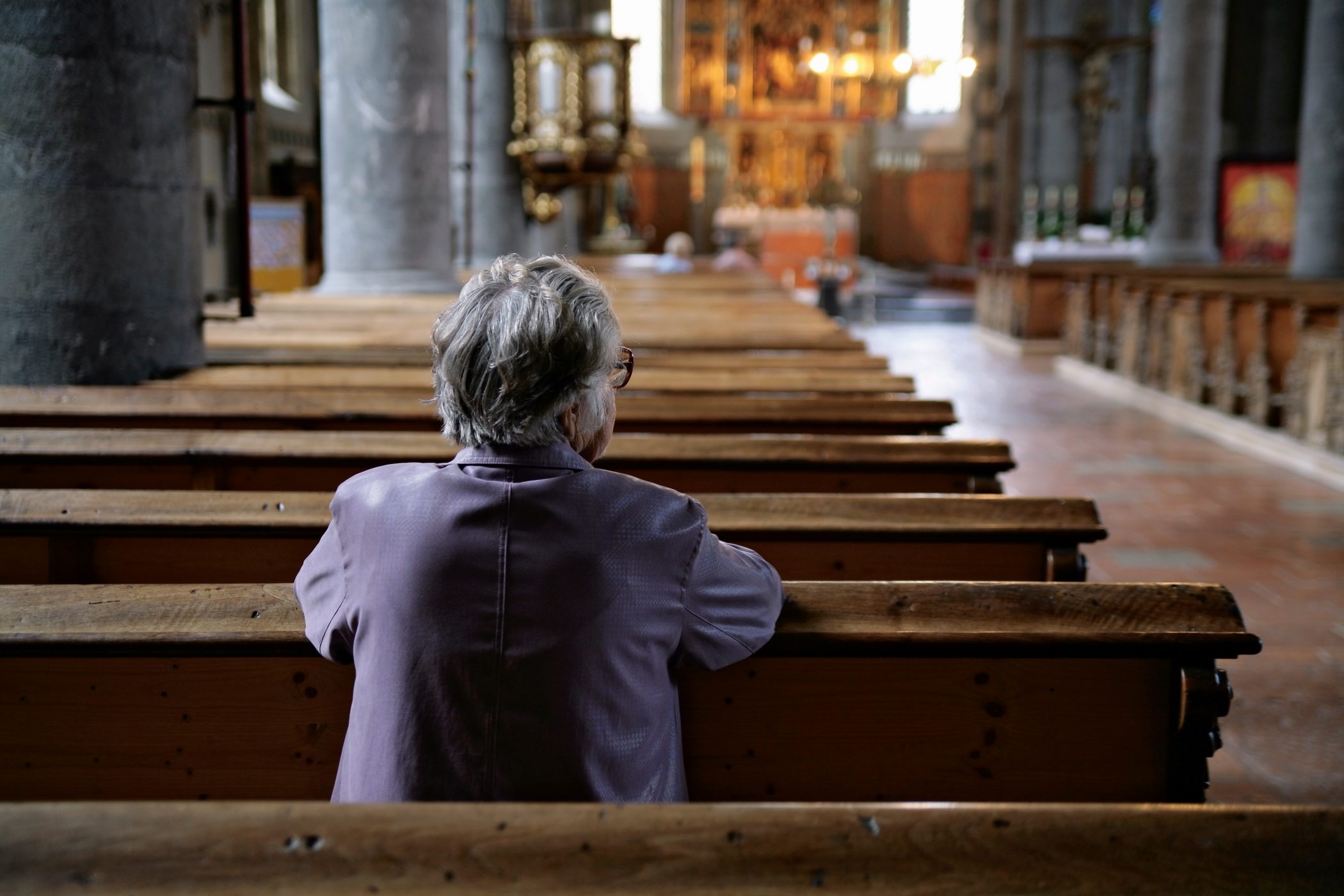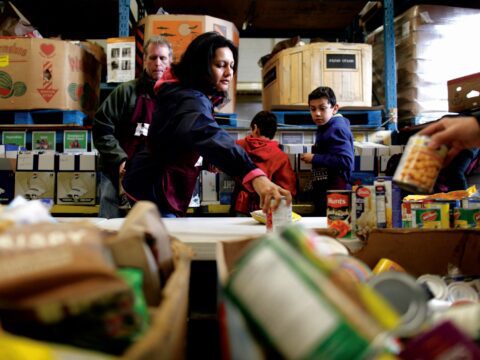My daughter died in 2015 at the age of 26. As I grieved her loss, I turned to the Bible, which is steeped as much in sorrow as it is in joy. There I found people who also knew loss: Abraham, Joseph, Job, Isaiah and Jeremiah, to name a few. By reading their stories, I learned that we are not alone in our grief — tears are part of a life of faith.
Yet within a month of my daughter’s death, family members and well-meaning people from work and church encouraged me to cheer up. “She’d want you to be happy,” they said. This may be true, but the phrase is laden with subtle recrimination. If we are not happy, it is implied, we fail to honour our dead. They will be disappointed.
You may unsubscribe from any of our newsletters at any time.
This is nonsense, of course. I suspect that my daughter would prefer that I be true to myself and mourn at my own pace. But it can be hard to permit ourselves the time and space needed to grieve, especially when our faith communities don’t encourage this.
Sadly, some congregations continue to praise as an act of faith the cheerful acceptance of a loss. One study of 184 grieving families found that many believers stopped going to church because they felt ostracized for not celebrating a death or for failing to recover after a desirable period. Others feared that to grieve openly would set a poor example.
The idea seems to be that belief in the Gospel should make Christians immune to grief. Jesus has overcome death, and so if our faith is strong, goes the thinking, we will not weep. Rather, we will be happy that our deceased loved ones are now with God.
More on Broadview: After the N.S. shootings, we’ve lost a way of life
Paul’s comforting words to believers in Thessalonica are often quoted to further this misapprehension: “Do not grieve like the rest of mankind, who have no hope,” he wrote. But Paul was not prohibiting sorrow. He was merely urging his readers not to sorrow without hope. Grief and hope are not mutually exclusive; they may, in fact, be complementary. After his daughter died in his arms, Martin Luther wrote, “It is a marvellous thing to know that she is certainly in peace and that all is well with her and yet to be so sad!”
Grief is the natural and appropriate response to loss. If a faith community discourages mourning, it may push congregants toward anxiety, depression and emotional detachment. There is a time to weep, the teacher of Ecclesiastes instructs.
In addition to encouraging hope along with grief, Paul also urged his readers to mourn with those who mourn. This provides a clue to one role faith communities may play in times of loss.
My neighbour stopped by within a week of my daughter’s death. He too had lost a child. Ours was an understanding that needed few words. In silently sharing sorrow, we commune with those who grieve, entrusting our tears to a God who weeps with us. This is faith in spirit and deed.
This column first appeared in Broadview‘s May 2020 issue with the title “A time to weep.”
Broadview is an award-winning progressive Christian magazine, featuring stories about spirituality, justice and ethical living. For more of our content, subscribe to the magazine today.














I truly appreciate this. It lets me feel that I am not alone in my way of grieving. It’s very interesting. Thank you
Thank you, Kathy. Our grief is our own; we each mourn in our own way. We must stumble and crawl on a path that that is new to us, finding our way as best we can. At the same time, surely we all journey through the same dark valley—in this at least we are not alone.
So touching and he speaks such truth.
Thank you, Roni. Whatever truth lies in grief comes at a cruel cost, one most of us would happily avoid. May you have moments of precious peace.
First, I would find it hard to find a congregation stating “It’s an act of faith to have a cheerful acceptance of a loss”. This is misconstrued information either given or taken.
Secondly, we all grieve differently. Some stated that I didn’t like my father, because I didn’t cry after he died. I’m not a “toughy”, my nature is to just move on.
One can be sure that 1 Thessalonians 4 speaks to those who are Christians; it informs us to be different from non-Christians. We are called apart from the world and should see it from God’s perspective, not the world’s perspective. In fact, just before verse 13 Paul reminds Christians to act accordingly so that the worldly people see our example of Christ, and that we are not lacking in faith.
You quote Old Testament people who grieved, New Testament believers grieved as well: Jesus, Peter, Paul, and others.
So what was Paul’s purpose in OUR ignorance in 1 Thessalonians 4? First, the church of that time was worried, that if Christ returned for His people, that those who died already would not ascend into heaven. (He wanted them to know this would not be the case)
It’s not that Paul tell us not to grieve, but tells us we have a hope – we’ll see the departed one again. (This is dependent if we/they are Christians – that’s important. verses 15-16) Verse 17 is the most encouraging – at the end of it all we will ALWAYS be with the Lord.
BTW – I find most people will leave the Church because they never had a need for it in the first place (Matthew 13), and they’ll find excuses to do so. Blaming others or God is easier than shouldering our mistakes in life.
Your ending was taken to heart; sometimes God puts us through trials and tribulations to be a blessing to others, even if we don’t see it or it hurts at the time.
Recently, in my own scripture reading and pondering, I have been substituting the word “trust” for “faith.” Trust in God. I’m amazed how I have started to “see” things differently. And so thankful that I can continue to sorrow with hope. I love that concept.
As you pointed out, this is huge pitfall: “The idea seems to be that belief in the Gospel should make Christians immune to grief.”
I’m thankful that “tears are part of a life of faith.” Or, as I trust my Savior, He expects me to cry and hurt along the path of discipleship. And He is there to mourn with me.
Thank you, Tom. After my daughter died, terms that were once open to theological interpretation and easy answers suddenly became immediate and practical. “Trust,” “hope” and “faith” took on new meaning, as you pointed out in your most interesting comment.
The most helpful book I read when my 19 year old son died suddenly was “When Bad Things Happen to Good People” by Rabbi Kushner. I must have read that book at least 10 times. Having well-meaning people reassure me that it was part of God’s plan made me furious. God does not plan the death of children!
Thank you, Maryann. I too have read many of Rabbi Kushner’s books. The Lord is My Shepherd is a favorite. After my daughter died, I also found solace in Abraham Heschel’s The Prophets and Philip Yancey’s The Bible Jesus Read.
Your comment reminds me of another writer, also a bereaved parent. After the death of his infant son, author and theologian Lewis Smedes found that he could no longer believe the “hard-boiled theology” of a God that decrees the how and when of all things. “I knew that I could never again believe that God had arranged for our tiny child to die before he hardly begun to live,” he wrote, “any more than I could believe that we would, one fine day when he would make it all plain, praise god that it had happened.” He called this a “wrenching intuition,” yet found that it did not shatter his faith. “It seems to me that the privilege of being the delicate organisms we are in the kind of world we live in comes at price. The price is that things can go wrong, badly wrong sometimes, which should come as no surprise.” [Lewis B. Smedes, My God and I: A Spiritual Memoir (Eerdmans, 2003): 120-123.]
For myself, “Why” seems to be the wrong question. I am more interested in “When.” I know how my daughter died, but even if a patient angel meandered into my office as I type and explained every aspect of “why it had to be” in a way that I could understand, I wouldn’t care, not really. I doubt I would have an epiphany and say, “Ah-hah, now I understand, that makes it all right then.” It is not all right. None of it is all right. Understanding God’s designs will not bring my daughter back. Our questions, our demands for reasons, they all come down to this one simple need. We want our children in our arms. This is our yearning, this grief is our prayer: “When will we see them again?”
“Christians should mourn alongside one another — but too many churches expect cheerfulness”. This byline from the article is misleading. The author said his own family, his work colleagues and some people from his own church thought he could be more cheerful. I would challenge the assumption that “most churches” do not respect the grieving of individual members. That does not deny that some people have no training or experiential point of reference to respond to a family members grief. Christians understand that ultimately christians hope is found in eternal life, but that a grieving person cannot necessarily hear that hope at the beginning of the process when the pain is so raw.